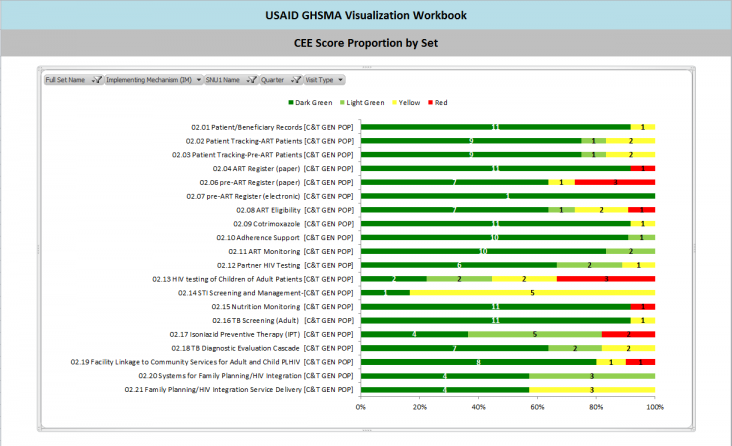Home » What We Do » Global Health » HIV and AIDS » Technical Areas » Using Health Information Systems for Data Collection and Analysis for HIV/AIDS
- What We Do
- Agriculture and Food Security
- Democracy, Human Rights and Governance
- Economic Growth and Trade
- Education
- Ending Extreme Poverty
- Environment and Global Climate Change
- Gender Equality and Women's Empowerment
- Global Health
- Water and Sanitation
- Working in Crises and Conflict
- U.S. Global Development Lab
- DATA-DRIVEN DECISIONS
- HEALTH INFO SYSTEMS
- DATA & ANALYTICS
- EVALUATION
- SURVEILLANCE
- EFFICIENCY & ACCOUNTABILITY

Photo credit: Improving Access, Curriculum, and Teaching in Medical Education and Emerging Diseases (IMPACT MED)
The U.S. Agency for International Development (USAID) supports the development of Health Information Systems (HIS) responsible for the collection, aggregation, analysis and use of routine health data. USAID believes that by building human resources for HIS, establishing clear processes for data management and use and supporting the use of appropriate technology, host country governments and other stakeholders are able to manage HIV programs more effectively to achieve better health outcomes.

This dashboard is an example of how USAID is monitoring and assessing the quality of care provided to HIV/AIDS patients at USAID-supported health facilities.
Data source: USAID SIMS visualization workbook
The Agency supports the development of health information systems in a variety of ways, including:
- The HIS Strengthening Resource Center, developed by MEASURE Evaluation, is an online collection of learning, information sharing and resources for HIS development and strengthening. It also serves as a collaborative space for health professionals to share and exchange information on HIS strengthening.
- The Health Data Collaborative is a joint effort by multiple global health partners to work alongside countries to improve the availability, quality and use of data for local decision-making and tracking progress toward the health-related goals. The Agency supports the network of working groups addressing key issues such as interoperability and community monitoring systems.
- USAID collects survey data at U.S. President's Emergency Plan for AIDS Relief (PEPFAR)-supported sites to assess the quality of HIV services delivered. Site Improvement through Monitoring System (SIMS) assessments are submitted via tablet device and then analyzed to identify service quality gaps and performance trends.
Additional Resources
- Discover the Performance of Routine Information System Management's conceptual framework and tools
- Visit the MEASURE Evaluation HIS Resource Center
- Explore the Routine Health Information Systems Curriculum and Facilitator's Guide







Comment
Make a general inquiry or suggest an improvement.